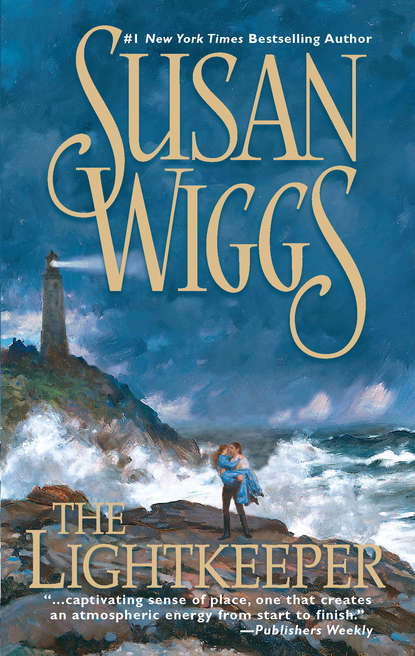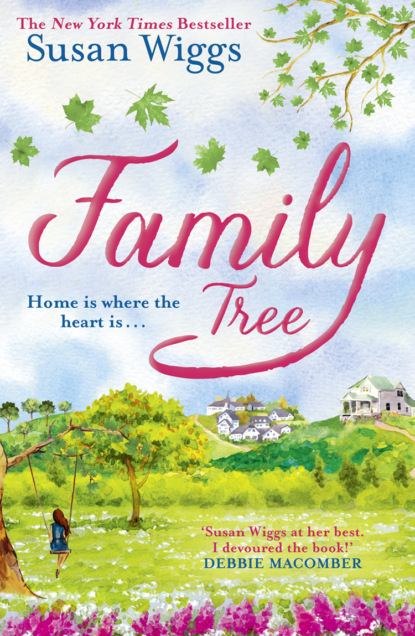
Полная версия
Just Breathe
“Mimi’s not—”
“Don’t even.” She held up a hand to stop him. “Don’t tell me she’s not a stable girl, a slut, a home wrecker. Don’t tell me she’s the Robert Trent Jones of arena design. Don’t tell me how warmhearted and understanding she is.”
“Why, because you’re going to tell me you’ve been understanding? News flash—playing stud to your mare was not exactly a turn-on. Maybe if you’d been there for me outside the window of conception—”
“Oh, ‘you weren’t there for me,’” she said. “That’s a classic. At any point, you could have come to me, talked about this. But I guess it’s just easier to blame me for your choices.”
“Okay, I can see you’re not ready to acknowledge your part in this yet.”
“My part? I have a part? Oh, goody. Well, guess what? I’m on center stage now.”
He tilted his head to one side. “Fine. Go for it. Let me have it. Don’t stop at backing the Lexus over a mailbox. Do your worst.”
“That’s your specialty,” she shot back, wickedly pleased that he’d mentioned the Lexus. “What could be worse than what I walked in on yesterday?”
Jack fell silent for a moment. Then he said, “I’m sorry.”
Here it comes, she thought, ready to go limp with relief. Finally, a little show of remorse.
Stepping over the discarded things on the floor, he walked into the main room, his hands shoved into the pockets of the robe. “I mean that, Sarah,” he went on. “I’m sorry you had to find out like that. I wish I’d told you sooner.”
Find out…told you…Wait a minute, she thought. This was supposed to be the apology segment of the crisis. The we-can-work-it-out phase. Instead, he was telling her that this was not an anomaly, a one-time slipup. It had been going on for a while. Sarah’s stomach lurched. “Told me what?”
He turned around, looked her in the eye. “I want a divorce.”
Congratulations, she thought, forcing herself to hold his gaze. You just scored a technical knockout. But somehow, she was still standing. Still calm. “That’s supposed to be my line,” she said.
“I’m sorry this hurt you.”
“This is still not remorse, Jack. You’re sorry you got caught. You’re sorry my feelings got hurt. How about being sorry you destroyed us? Oh, and here’s a concept. How about letting me in on your little secret before I suffer through a year of fertility treatment, huh? Or were you going to change your mind if I got lucky and turned up pregnant?”
“God, I didn’t think.” He splayed his hand through his hair.
“You didn’t think? You dragged me into Fertility Solutions month after month and it never occurred to you to think about whether or not this was what you wanted?”
“You wanted it so badly, I didn’t know how to tell you I was having second thoughts. Listen. I’ll go someplace else for a while,” he said.
“Don’t be ridiculous. This is your house.” She gestured around the pristine home, indicating the warm, quiet elegance of the decor. Jack had once called it her dream house, but it had never been that. It came preplanned, prepackaged, like a magazine layout. She had simply moved in and unpacked her things like a temporary resident. It was filled with expensive things she had not picked out and had never wanted—tasteful artwork and collectibles, luxurious furniture. Deep down, she knew this was a place she had never belonged. She could picture herself leaving it behind like a hotel guest checking out of a luxury suite.
Leaving. The idea was there. It was not a decision she had worked herself up to. It just appeared fully conceived in her mind. The betrayal had occurred; now the next step was to leave, simple as that.
Or, Sarah thought, she could stay and fight for him. Insist on getting help, exploring their issues together, healing together. Couples did that, didn’t they? It all sounded terribly exhausting to Sarah, though. And the cold feeling in the pit of her stomach seemed to contain a terrible truth. He might be the one asking for a divorce, but she was the one who wanted to leave. When had everything gone off track for them? She couldn’t pinpoint the moment. She used to feel so lucky, wanting for nothing. Now she wondered where her luck had gone. Maybe she and Jack had used up all their cosmic Brownie points on the cancer.
“This is your life,” she said to him. “You can’t walk away from your own life, Jack.”
“I just meant—”
“But I can.” There. She’d said it. The words were out, a gauntlet flung to the ground between them.
“What’s that supposed to mean?” he asked. “Where will you go? You don’t know anybody. I mean…”
“I know what you meant, Jack. There really isn’t any point in being diplomatic now, is there? This whole marriage has always been about your life, your hometown, your job.”
“This job made it possible for you to stay home all day and draw pictures.”
“Well, gosh, I guess I should be grateful for that. Maybe it was a way to deal with the fact that you were never home.”
“I never knew you felt put out by the fact that my job kept me busy.”
“You never knew how I felt about a lot of things. Take infidelity. If you knew how I felt about that, you probably would have left me before fucking someone else.”
His cell phone rang again. “I have to go to work,” he said, and went to finish dressing.
He emerged from his dressing room a few minutes later looking as neat and polished as an Eagle Scout. “Listen, Sarah,” he said. “We have to deal with this. Just…take it easy. We’ll talk about it some more tonight.”
She stood at the window and watched his large, shiny truck disappear down the rain-slick road. After he was gone, she stayed there, looking out at the gray day. Her mind worked sluggishly, weighed down by disappointment and a slow-simmering rage. She sorted through the things Jack had said, and found a grain of truth in one thing: they had been so focused on wanting a baby that they didn’t notice they had stopped wanting each other.
It was a lame, overused excuse for infidelity. And Jack was a grown-up. It didn’t excuse what he had done, or justify his demand for a divorce.
She took a deep breath. So she was, what, supposed to hang around all day waiting for him to come home and kick her to the curb? Good plan.
Chapter Three
The empty prairie, crisscrossed by a grid of startlingly straight roads, rolled out like a vast wasteland in front of the hood ornament of the GTO. It was remarkable, Sarah thought, how quickly the suburban sprawl of Chicago gave way to the broad gray-and-white checkerboard of the heartland at its most bleak.
In the late afternoon, her phone sounded off with Jack’s ringtone. She picked up without a greeting. “I’m leaving,” she informed him.
“Don’t be stupid. We agreed to talk about this.” Jack’s voice was sharp with both anger and distress.
“I didn’t agree to anything, but I guess you missed that part.” When had he stopped hearing her? she wondered. And why hadn’t she noticed? “There’s nothing to talk about.”
“Are you kidding? We’ve barely begun to discuss this.”
“The next time you hear from me, it’ll be through my lawyer.” As if she even had one at this point. She felt like such a phony, talking about “her” lawyer. But even just a day after discovering her husband with another woman, she had a clear vision of what her future held—legal counsel.
“Come on, Sarah—”
She gunned the engine to pass a semi.
“My God.” Jack’s voice squawked in disbelief. “Don’t tell me you took the GTO.”
“Fine. I won’t tell you.” She threw the cell phone out the window. It was a stupid, childish gesture. God knew, she would need a phone in the days to come.
She stopped at a RadioShack and acquired a cheap, pay-as-you-go phone, strictly for emergencies. She bought it with a brisk and icy calm, as if she did such things every day. As if she were not on fire with panic inside. There was a brittle outer shell around her and inside, a clockwork brain directing each step she took with passionless efficiency.
It was as if she had rehearsed the act of leaving her husband a hundred times before—pack a bag, burn CDs with all the personal data she might need, all the dark, sad-voiced music she might crave along the way. She’d had no trouble pulling the records—a simple step. She knew exactly where everything was. One of the terrible virtues of Jack’s illness was that it had forced them to keep all their affairs in order and well documented. Now their affairs—all but the extramarital one—were still in perfect order, including her separate bank account and the title to the GTO.
Driving through nowhere, she spared a thought for some of the things she had left—Waterford crystal lamps. An Italian leather sofa, the Belleek china and serving pieces, a set of Porsche forged cooking knives, a flat-screen TV. Maybe one day she would miss some of those things, but so far, she didn’t even want to think about them. Like a wild animal in a steel-jawed trap, she was willing to gnaw off a limb in exchange for a swift release.
Sarah stopped for gas in a town called Chance. She went to the ladies’ room to change clothes and discovered that she had stuffed her suitcase with far too many A-line skirts and blazers and had forgotten certain key items, like a hairbrush and pajamas. Maybe she should have spent more time picking the right kind of clothes to bring on her journey. But when you’re running out on your marriage, she thought, you didn’t really take time to shop or plan ahead. You didn’t even take the time to think.
She tugged a purse-sized comb through her hair, scowling when she hit a snag. Her hair was at that awkward in-between stage, neither impressively long nor sassily short. Jack claimed he liked her hair long and silky—“my California girl,” he used to call her.
“Can you take a walk-in?” Sarah asked the woman at the counter of the Chance, Illinois, Twirl & Curl.
“What do you need, hon?” Heather, the stylist, scrutinized her in the mirror.
Sarah touched her hair. “I want to be ritually shorn of the person I never was to begin with.”
Heather grinned as she led Sarah to a chair. “My specialty.”
It was a relief to lie back over the sink, close her eyes and surrender to the warm stream from the hose and the creamy texture of the shampoo. The familiar perfume of the salon comforted her.
“You’re a natural blond,” Heather remarked.
“I was experimenting with being a redhead but it didn’t work out. I’ve gone through every shade of brunette, too. Always looking for something different, I guess.”
“And now?” The stylist finished with the shampoo, then combed smoothly and effortlessly through Sarah’s hair.
Sarah took a deep breath and stared at her reflection in the big round mirror above the counter. The slicked-back hair made her look strange and unfinished, like a just-hatched chick. “Maybe I’ll think better with short hair.”
She heard the hungry rasp of the heavy scissors and with the first snip, she knew the decision was irrevocable. A cool breeze touched her neck, and a lightness lifted her, as though nothing anchored her to earth.
At a Wal-Mart outside Davenport, she bought a velour jogging suit to sleep in. The zip-up jacket and elastic-waistband pants were the perfect togs for terrible-looking roadside motels with sleepy desk clerks who had to be summoned by a bell on the counter.
At the state line, she caromed into a new-and-used car dealership so vast that its lot covered acres.
The GTO would fetch a handsome price, more than enough for a more appropriate car. She wouldn’t miss the muscle car in the least and felt nothing when she explained that she wanted to trade it in. She had presented the car to Jack with so much love in her heart. Where had that love gone? Was it possible for it to simply disappear?
Poof, rubbed out like a mistake she made in her comic strip.
The question was, what car was appropriate? A car was a car, a way to go from point A to point B. All of a sudden, the issue seemed to matter. If she couldn’t pick out her own car, what hope did she have of mapping out her own future?
Her footsteps dogged by an overeager saleswoman named Doreen, she strolled the lot, trying to tune out Doreen’s constant, upbeat patter about the can’t-miss attributes of every car they passed. “Here’s a beauty,” she said, indicating an ultraconservative Mercury Sable. “That’s actually the same model I bought after my divorce.”
Sarah ducked her head and tried to resist hunching her shoulders. Had Doreen somehow guessed that she was fleeing her husband? Was she wearing the unwarranted shame like a scarlet letter on her chest? She nearly ditched Doreen then and there. But she needed wheels, and she needed them now. At least, Sarah thought, she wasn’t dealing with a guy wearing a plaid sport jacket and too much aftershave.
There was a slight reprieve when Doreen’s phone rang. She glanced at the screen and said, “Sorry. I’m afraid I have to take this.”
“You go right ahead,” Sarah said.
Doreen turned aside and lowered her voice. “Mommy’s busy,” she said. “What do you need?”
Sarah slowed her steps as if to check out a silver hybrid. In actuality, she was checking out Doreen, who had been transformed in seconds from yappy high-pressure salesperson to harried single mom. Overhearing Doreen trying to referee a sibling dispute on the phone, Sarah realized there were worse things than being divorced. Like being divorced with kids. What could be harder than that?
All right, she thought, Doreen would get a commission from her. She grew more serious about her search, but all the cars seemed the same—bland, practical, ordinary. When Doreen got off the phone, Sarah said, “You’ve got every car in the world here. And none of them seems right.”
“Why don’t you tell me a little more about what you’re looking for? Do you need four-wheel drive? A sports car…?”
The sodium vapor lights came on over the parking lot, buzzing to life in the late-afternoon twilight. Sarah thought about Doreen’s kids, waiting for her to come home from work.
“I’m leaving my husband,” she said, the words frosting the air, seeming to hang there a moment like a speech balloon from Shirl’s mouth. “I’ve got a long drive ahead of me.” For some reason, it helped to tell this stranger the truth. “It seems like I should have the right car. I want…I’m not sure.” She offered a self-deprecating smile. “Maybe I’m looking for a magic carpet. Or Chitty Chitty Bang Bang. With a drop top and a great sound system.”
Doreen didn’t bat an eye. “Hold that thought,” she said, and consulted her electronic inventory tracker. “We need to hurry.” Her voice was edged with urgency now. “This won’t last another five minutes.”
Mystified, Sarah followed her off the lot, back to a shop where cars were being prepped for market. “We’ve got a one-year waiting list for this. It was some woman’s dream car, but she traded it in after owning it for just a few months.”
They found a mechanic in an insulated jumpsuit under the hood of the cutest midnight-blue-and-silver car Sarah had ever seen. “You have a Mini,” she said.
Doreen beamed like a proud parent. “My first. It’s a Cooper S convertible—rare as hen’s teeth. I’m sure it’s promised to the top person on the waiting list but…gee…I just can’t seem to find that list, and I’d hate to bother someone at the dinner hour.”
They exchanged conspiratorial smiles. The little British-made car was adorable, like a windup toy. She could just hear Jack now, laughing and pointing out all the reasons a Mini Cooper wasn’t practical or safe. It was a passing trend, overpriced, prone to breakdowns, he would say.
“It’s perfect,” Sarah told Doreen. “But I have to ask, why did she trade it in?”
“Right after she bought it, she found out she was expecting her third child. You can probably fit a family of four in a Mini, but five would be stretching it.”
Plenty of room for me and my fax machine, Sarah thought.
“It’s got autolock, which is an antitheft feature. It doesn’t have OnStar, though,” Doreen admitted.
“That’s okay. I’ve never locked my keys in the car before, and I don’t plan to start. I don’t need a GPS, either. I know where I’m going.” An hour later, she drove it off the lot. The car was crowded to the rear with her stuff, and the sound system didn’t disappoint. She headed to the highway, darting up the on-ramp and merging into the stream of traffic headed west. In the middle lane, she suddenly found herself flanked by a pair of semis rising like steel walls and looming in close, ready to crush her. A terrible fear squeezed her heart. What the hell am I doing?
Sarah set her jaw and eased back on the accelerator, letting the trucks pull ahead. Then she turned up the radio and burst into song, “Shut Up and Drive” by Rihanna. She sang with a crushing sense of loss that mingled oddly with a terrifying exhilaration. She sang for the things she’d left behind. For a marriage she used to believe in, but didn’t anymore. For the hope of having a baby, which was now as dead as her love for Jack. For the anonymous woman who had ordered the Mini and then traded it in when she realized her life was about to change radically.
Sarah found the first of a series of cheap roadside motels and lay staring at the blank ceiling of her room and listening to the sound of the highway. This felt like someone else’s life, she thought, someone she didn’t recognize at all.
Sarah drove west, her new car like a tiny bluebottle fly, flashing across the prairies, past endless seas of alfalfa and dried corn and deep emerald-green winter rye. By the time she reached North Platte, Nebraska, she made a terrible admission to herself. She had not been happy in a long while. This was not sour grapes. Humbly grateful for Jack’s recovery, she had been afraid to voice her discontent. It would have seemed so petty and ungrateful. Instead, she had existed in a state that passed for happiness. Jack was well, they were financially comfortable, they lived in a lovely home in a nice neighborhood, they were trying to start a family to prove to the world that all was well. But happy?
That was the trouble with the human spirit, she realized as she drove the Mini across the mountains and finally to the edge of California. You could pretend all you wanted that you were happy, but discontent was bound to manifest itself. For Jack, it was in the arms of another woman. For Sarah, it was her dogged determination to get pregnant.
“So far, not so good,” she said, her eyes fastened on the horizon.
On her final day on the road, she woke up at dawn and drove the final leg of the journey, along Papermill Creek through the murky, uninhabited forest of Samuel P. Taylor State Park, where the tall, thickly branched trees arched over the winding road, creating a canopy of shadows. Finally she reached the tiny hamlet of Glenmuir, on the western edge of Marin County, remote and nearly forgotten, surrounded by a wilderness so spectacular that it was protected by an act of Congress.
Emerging from a green tunnel of gloom, she passed rolling green hills dotted with dairy farms and ranches, through misty valleys to the gray-shrouded bay, where old dock pilings pierced through the fog. It was about as far as she could get from Jack without actually leaving the continent.
At the end of the journey, she found herself in a place she had not lived since heading off to college. She passed the dock where she used to stand, a pale shadow watching the world go by. Then she pulled up the drive and parked. She walked into the house by the bay where she had grown up, feeling the ache and fatigue of her marathon drive in her neck and shoulders. “I left Jack,” she told her father.
“I know. He called me.”
“He was screwing around.”
“I know that, too.”
“He told you?”
Her father didn’t answer. He gave her an awkward hug—things were always awkward between them—and then she went to bed and slept for twenty-four hours straight.
Chapter Four
If she didn’t know better, Sarah would have thought it was a bad idea to hire a divorce lawyer named Birdie. Birdie Bonner Shafter, to be exact. It sounded more like a porn star than an attorney.
She did know better, though she wondered if Birdie would remember her from high school. Probably not. Three years ahead of Sarah, Birdie had been too busy running the show—student council president, Girls State, volleyball team captain and Key Club were just a few of her roles—to spare a thought for lesser beings. The fact that she had been the meanest girl in the school was actually an asset now.
Sarah had been invisible to everyone who mattered in high school. Come to think of it, she had been invisible all her life, until she met Jack. Now she remembered why. It was safer to fly below the radar. She should have stayed that way—unnoticed, watching the world go by, drawing her private observations, making fun of the things she secretly envied. But no. She had to go and plunge into life—and into love—as though she belonged there. As though it was her right.
She got up and went to the window of the outer office, sending the receptionist a nervous smile.
“Can I get you something to drink?” the receptionist offered.
“No, thank you,” said Sarah. “I’m fine.”
“Ms. Shafter should only be a few minutes longer.”
“I don’t mind waiting.” The tall casement window was surrounded by gingerbread molding. Some of the glass panes were original, judging by their slightly brittle, wavy quality. Birdie’s law office occupied one of the historic buildings of downtown Glenmuir. Since Sarah had moved away, the main square had barely changed. It was a cluster of Victorian and carpenter Gothic wood frame buildings, some original, some knockoffs, the old ones built by nineteenth-century settlers who had come to fish the abundant waters of the secluded bay. A few local B and Bs attracted tourists from the Bay area, including May’s Cottage, a private beach retreat that belonged to Sarah’s great-aunt. The snug white bungalow was so popular as a vacation rental that it booked up months in advance. Most tourists, however, found the town remote and strange, hanging on the edge of nowhere, and they let the locals be.
When not festooned in fog, the area around Tomales Bay had a clarity of light she had never seen anywhere else in the world. The intense blue of the sky was reflected in the water. The placid water in turn mirrored the wooded wilderness that surrounded the bay. It looked exactly as it had five hundred years ago, when Sir Francis Drake had sailed in on his soon-to-be-legendary Golden Hind, to be greeted by painted members of the Miwok tribe.
Sarah smoothed her hands down her tailored blazer, feeling overdressed in her Chicago outfit. People around here tended to dress in organic fibers and homely, supremely comfortable shoes. She didn’t really own anything like that anymore. Jack liked her to dress like a Neiman Marcus catalog model, even when she protested that she worked at home, alone.
When they were first married, she liked to draw at her drafting table wearing a faded University of Chicago sweat suit and thick wool socks, her hair held back with a clip. “It helps me be creative,” she had once told him.
“You can be creative in a sweater and slacks,” he replied, and gave her a three-hundred-dollar cashmere cardigan set to make his point.
She gritted her teeth and focused on the bay in the distance. A seaplane came in for a landing, the lawn-mower whine of its engine briefly filling the air. Sometimes the aircraft brought tourists to town but most of them came to pick up fresh oysters and transport them, still alive, to big-city restaurants. There was a boat out today, its full sails pulling it toward the horizon. Closer in, she could see the harvest skiffs her father used to take out three hundred sixty-four days a year, until he’d handed the business over to his son. Sarah’s brother Kyle was as conventional as she was odd, and he’d been perfectly content to take over the family business. Meanwhile, their father had traded his cultivation trays for a 1965 poppy-red Mustang GT convertible in dire need of restoration. He lavished attention on the car, which seemed to occupy a permanent berth in Glenn Mounger’s auto body garage.











